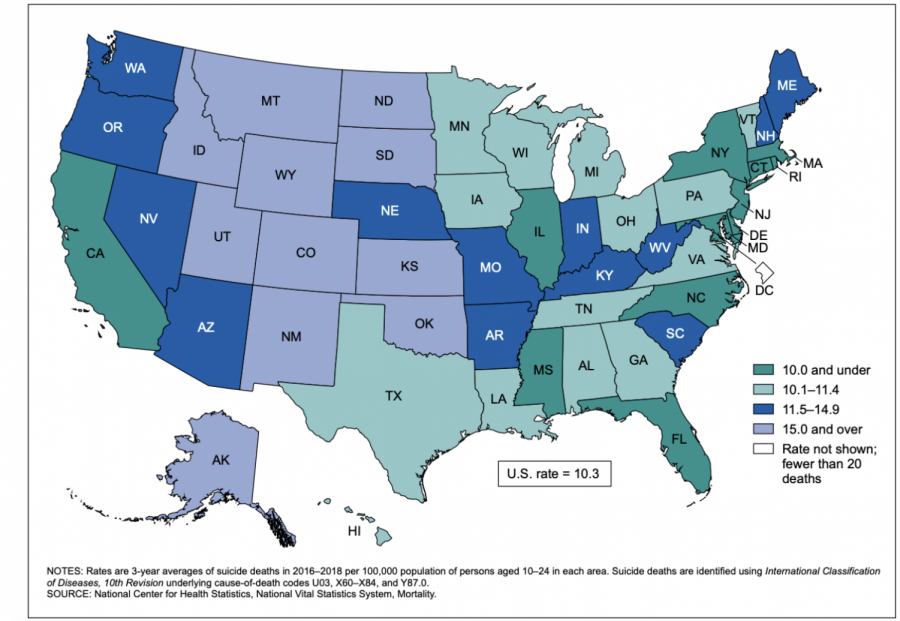Quarantine and Teen Mental Health
Remove the stigma about mental health so teens can talk
Although teen mental health is an issue more commonly addressed in recent years, due to the lockdown, the world is acknowledging a rise in cases of both depression and anxiety in teens and young adolescents.
This increase is leading to the realization that like adults, teens also need support, and that teens too can suffer from mental illnesses. Now more than ever, teens need support, and the topic of mental health needs to be destigmatized.
Traditionally a taboo subject, the mental health of teens has been underemphasized for decades; the common belief being that kids could not suffer from high stress like adults. According to the Kaiser Family Foundation, teens are actually 56% more likely to suffer from depression in quarantine. This number is a large increase from 2014, where the rate of depression in teens was at 24%. The combination of little to no social interaction, online schooling, and heaps of homework are the main contributing factors to this rise in depression rates in teens.
For the growing mind, this isolation is foreign and a large stressor leading to mental illness. Not only are depression rates up, but suicide rates have increased since before the lockdown. In 2009, suicide rates were about 10 suicides for every 100,000 male teens, but that has increased by 62% to an average of about 16 suicides for every 100,000 males, according to the Centers for Disease Control and Prevention. This change of rate is concerning because most of these deaths could be prevented if parents and trusted adults “just check in” with their teens Mark Keierleber wrote in an article for The 74, a nonprofit education news site. Keierleber was quoting. This comes from parent Brad Hunstable, whose child killed himself over stress from school. All it takes is a simple conversation.
A main factor to the high levels in teen mental rates has to do with the unavailability of parents or other adults to talk to. The lack of resources comes from the fact that most teens do not know where or how to find help. (Springer Link).
The first step in helping the youth of the country is letting them know that it is okay to suffer from a mental illness. Many teens fear that suffering from a mental illness is taboo, but what they need to know is that they can get help. This step is commonly skipped until it is too late. Teens spend most of their time at school, where they could be taught about accepting yourself and how to get help, but teens are very rarely told anything unless they work up the courage to ask someone for help. Schools need to have more communication with their students, letting them know how to get help. Many teens agree, like Aashi Mittal, who in October shared with the The 74 how, “‘the stigma surrounding youth suicide prevents many students from reaching out for help.’” The stigma of getting help is what keeps most teens from getting help. To solve this problem, parents and other adults need to be open about mental illness with teens.
For the teens of today’s society, mental illness is an issue a lot of us face. However, by being able to go to an adult or not having to worry about a stigma, teens can get the help they need to cure their mental illness. To do this though, we must change as a society to be more accepting of all people, and learn to be kinder.
National Suicide Prevention Lifeline
1-800-273-TALK
Nate Schallmo is a junior at Rio Americano High School





























Eileen Alisangco • May 31, 2021 at 11:00 PM
I agree with your statement about mental health in teenagers. It’s really important that we should talk about mental health more and be there for each other.
Ethan Huggins • May 22, 2021 at 3:44 PM
Well written, Nate. I agree with you as well about destigmatizing the subject of mental health. The more we talk about it, the better!
Alex Bornino • May 20, 2021 at 8:18 AM
I don’t hear enough people talking about this. We will be facing a huge mental health crisis very soon. Stay safe everyone!